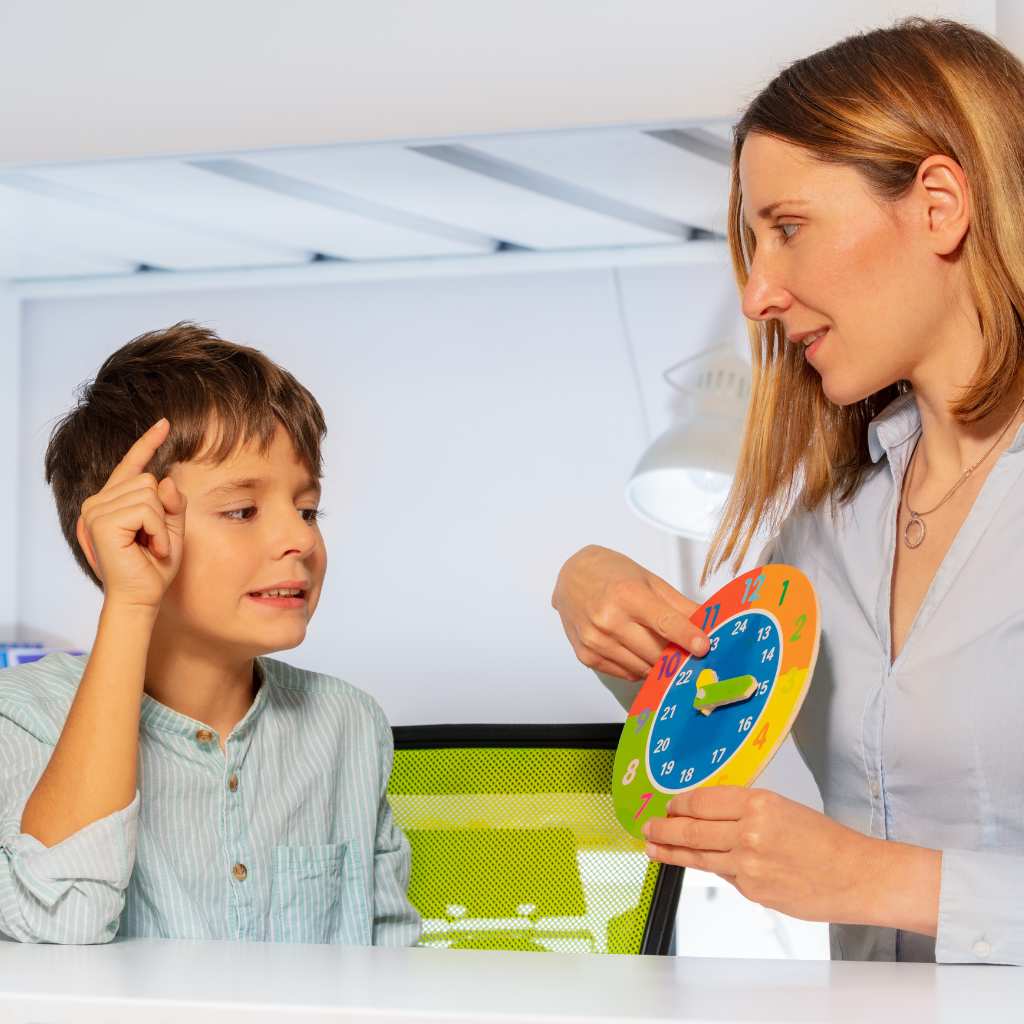Table of Contents
Can autism be diagnosed remotely?
If you’re reading this, it’s likely because you’re concerned that a loved one may have autism spectrum disorder (ASD), and you’re seeking answers. The first thing to understand is that diagnosing autism involves much more than completing a checklist or having a brief interview with parents. It’s a thorough process that considers a variety of developmental factors. Fortunately, there are now more accessible ways to navigate this journey, including virtual autism testing.
At this point, you are wondering if a virtual diagnosis is safe and accurate or if it is possible to diagnose by means of telemedicine. The truth is that the pandemic has almost forced society to migrate to virtuality not only in education or work-related fields but also in health care whenever possible. Now, virtual autism testing offers the convenience of home-based evaluations and helps reduce waiting times for families eager to understand their child’s needs.
So, keep reading this blog by ABA Centers of Virginia; we’ll explore how virtual autism testing works, its reliability, and how it can fit into the broader process of diagnosing autism.
How Virtual Autism Testing Works

The process for diagnosing autism online is as rigorous as in person; providers use a telemedicine platform and follow the DSM-5 criteria to identify deficits in social communication, interaction, and repetitive behaviors.
Typically, this process involves video observations, parent interviews, and developmental screenings, all done remotely. Let’s take a closer look at how this process usually works.
Here’s a closer look at how the process typically is:
- Initial Consultation: Families begin with a virtual meeting where they discuss concerns, developmental history, and behavior patterns of their loved one with a specialist.
- Observation Sessions: During these sessions, a clinician observes the child’s behavior in a natural home environment through video conferencing, providing valuable insights into social interactions, communication, and play.
- Developmental Assessments: Tools like the Autism Diagnostic Observation Schedule (ADOS-2) or other standardized instruments may be adapted for virtual use, allowing clinicians to gather essential diagnostic information.
- Feedback and Recommendations: Once the assessment is complete, the clinician discusses the findings with the family, providing a diagnosis if applicable and outlining the following steps, including potential therapies and interventions.
Is Virtual Autism Testing Reliable?
One of the most common concerns about virtual autism testing is its accuracy. Can a diagnosis made through a screen be as reliable as one made in person? The answer, supported by a study by Plos One, is increasingly positive. A review of 10 studies found that using telehealth to diagnose ASD is satisfactory, with accuracy rates between 80% and 91% compared to traditional in-person diagnoses.
Moreover, virtual testing offers distinct advantages, such as:
Reduced Anxiety: Children are often more comfortable and display more typical behaviors in their home environment, which can lead to more accurate observations.
Improved Access to Care: Families in remote areas or with transportation challenges can access specialists without long commutes.
Reduced Wait Times: More providers are available remotely, shortening the waiting period for evaluations.
Convenience: Caregivers can schedule appointments at their convenience, minimizing life disruptions.
Safety: Virtual assessments offer a safer option, reducing the risk of infection during health crises.
Cost-effectiveness: Eliminates travel and other in-person visit expenses, reducing overall evaluation costs.
More Options: Families have access to a broader range of specialists, regardless of geographical location.
Ease for Non-verbal Individuals: Facilitates participation through visual and video communication for non-verbal or minimally verbal individuals.
Earlier Access to Services: Helps ensure timely care, which is crucial for better clinical outcomes in children with autism.
Moreover, remote testing for autism can also present some disadvantages, including:
- Technology Dependence: Reliable internet access and suitable devices are essential for virtual testing. Technical issues can disrupt the assessment process.
- Limited Observations: Certain behaviors and interactions may be more challenging to observe in a virtual setting, potentially impacting the comprehensiveness of the evaluation.
- Complex Cases: For children with more complex developmental profiles or co-occurring conditions, in-person assessments might provide a more thorough understanding of their needs.
What Happens After a Diagnosis?
Receiving an autism diagnosis can feel overwhelming, but it is also the first step toward accessing vital resources and support. A precise diagnosis opens the door to early intervention services, which can make a significant difference in your child’s development.

So if, after the process, your loved one receives the official diagnosis of autism, the professional will explain in more detail about their autism and its severity, highlight the unique needs they may observe in your child, and indicate the treatment and support options available. These may include behavioral therapies and specialized educational programs.
Understanding ABA Therapy
One of the recommendations followed by a diagnosis that is not mandatory but will make a big difference in the life of your child with autism is to enroll in an Applied Behavior Analysis (ABA) therapy. ABA is a scientifically validated approach that focuses on improving specific behaviors, such as social skills, communication, and daily living tasks. It involves breaking down complex behaviors into smaller, teachable steps and reinforcing positive behaviors to encourage learning. Their components are:
- Individualized Treatment Plans: ABA therapy is highly personalized, focusing on the unique needs and strengths of each child.
- Data-Driven Approach: The therapist monitors progress through data collection, allowing for adjustments in strategies to ensure the child’s development is on track.
- Family Involvement: Parents and caregivers are integral to the success of ABA therapy. Training and involvement help reinforce learning at home.
More About Autism Services with ABA Centers of Virginia
Virtual autism testing represents a significant advancement in making autism diagnosis more accessible and timely. While it comes with its set of challenges, it offers a viable option for many families seeking clarity about their child’s development.
At ABA Centers of Virginia, we stay at the forefront of autism services. We offer a range of options, from official autism diagnosis early intervention to comprehensive, personalized ABA therapy designed to meet the unique needs of each child.
Our commitment is to support families in Arlington and Washington D.C. from the beginning, providing the tools and resources necessary for children with autism to thrive. Call us at (855) 957-1892 or contact us online and stay connected with us to learn more about how we can assist your family in this journey toward understanding and growth.







